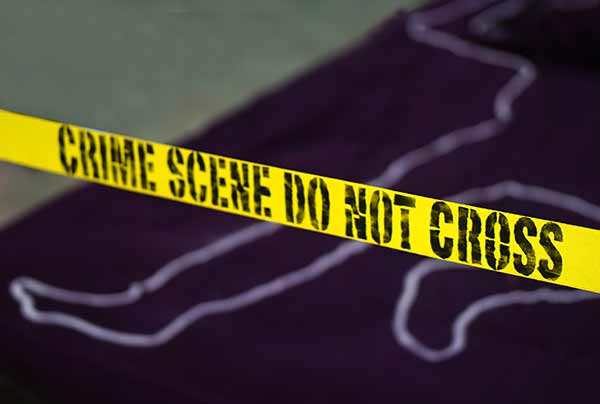Can You Legally Record Police Officers?
11/09/2025
When someone has died, it can be a very hard and confusing time. Especially if you were intimately involved in a persons death, or may have caused it or been responsible in some way. Whether it was a crime of passion, an accident, or premeditated killing, you have a right to experienced and competent counsel at all times.
If you have been charged with or may be charged with, any type of murder, you should contact a criminal defense lawyer immediately. The team at Ktenas Law has criminal defense backgrounds and years of experience in courtrooms and trials.

There are three things that prosecutors and investigators look for when deciding the type of murder charge to charge defendants with: Deliberation/Premeditation, Malice Aforethought, and Intent.

If all three are present, this will be charged as first-degree murder. If all three are present, and another felony is committed at the same time as these murders, such as aggravated sexual assault, armed robbery, or another violent crime, then you will be charged with felony murder, or capital murder, which is a subset of first-degree murder.
If only two characteristic of murder are present, this will most likely be considered second-degree murder. For example, if you have blatant disregard for human life, and intend to kill the person you have assaulted, but it was in the heat of the moment and not premeditated, this would be considered second-degree murder. This normally applies to “crimes of passion”, such as killing a person who you have just witnesses hurting your child, or killing your spouse upon finding them cheating.
Related Content: DUI Murder
While Illinois does not have a voluntary manslaughter charge, they do have an involuntary manslaughter charge. To be charged with involuntary manslaughter in Illinois, a person must perform a dangerous act that is likely to cause bodily harm to others, but with no intention of actually hurting or killing anyone.
You can be charged with involuntary manslaughter if you, for example, mishandle a firearm and accidentally shoot someone, and they die. All accidental, but preventable, deaths fall under involuntary manslaughter unless a motor vehicle was involved. If you were behind the wheel at the time of the incident, this is instead referred to as reckless homicide in Illinois, though many states refer to this charge as vehicular manslaughter.
Sentencing ranges greatly for each criminal charges, because there are only 3 charges to cover such broad categories. Every case is different from the next, and the one before, so it is extremely hard to pinpoint exactly where in the spectrum a case may fall.
These basic guidelines are based on average sentencing, though circumstances could make a person charged with involuntary homicide spend more time behind bars than a person charged with 2nd-degree murder.
Involuntary homicide and reckless homicide sentencing is extremely hard to pin down. There are multiple factors that can take probation only and turn it into 10+ years, such as reckless endangerment of children or if the defendant caused multiple deaths.
Ending a persons life does not necessarily mean that you committed a crime, and you may not ever have to serve a prison sentence or face legal consequences. In special circumstances, defendants will never be charged with a crime and police will decide that the homicide committed was justifiable, or a case may go to trial and a jury may decide that there should be no punishment for a murder based on the circumstances of that murder.
Learn More: Chicago Gun Lawyer
Justifiable homicide can include both intentional murder and unintentional killing. For example, if you are defending yourself from an assault or attack, and kill the person who is trying to hurt or kill you, this is considered self defense and is not punishable under the law. This can also apply to shooting or killing an intruder in your home, business, or car, and also if you kill someone in an attempt to stop them from causing others grave physical harm.
If you kill someone to prevent them from killing someone else, such as taking down an active shooter, their death will most likely be ruled a justifiable homicide. In all of these cases, the killings could be intentional killings or unintentional, and the outcome would be the same: they would be ruled justifiable homicides.

In order to claim self defense, a defendant must prove that any reasonable person would have considered their life to be in danger under the circumstances of the incident. You cannot get yelled at by an unarmed person and then shoot them in the back as they are walking away, this would be considered 2nd-degree homicide. If a person is running at you with a weapon drawn, however, a reasonable person would assume their life was in danger and would legally be allowed to use lethal force to protect themselves.
The best defensive tool you can have when facing homicide charges is to have an experienced and dedicated attorney in your pocket. At Ktenas Law, our criminal defense team does everything in our power to fight for the best outcomes for our clients. No matter the circumstances, our goal is always to build an ironclad defense to protect our clients. If you are facing homicide charges or any other criminal charge in the Illinois area, call today for a free consultation.

